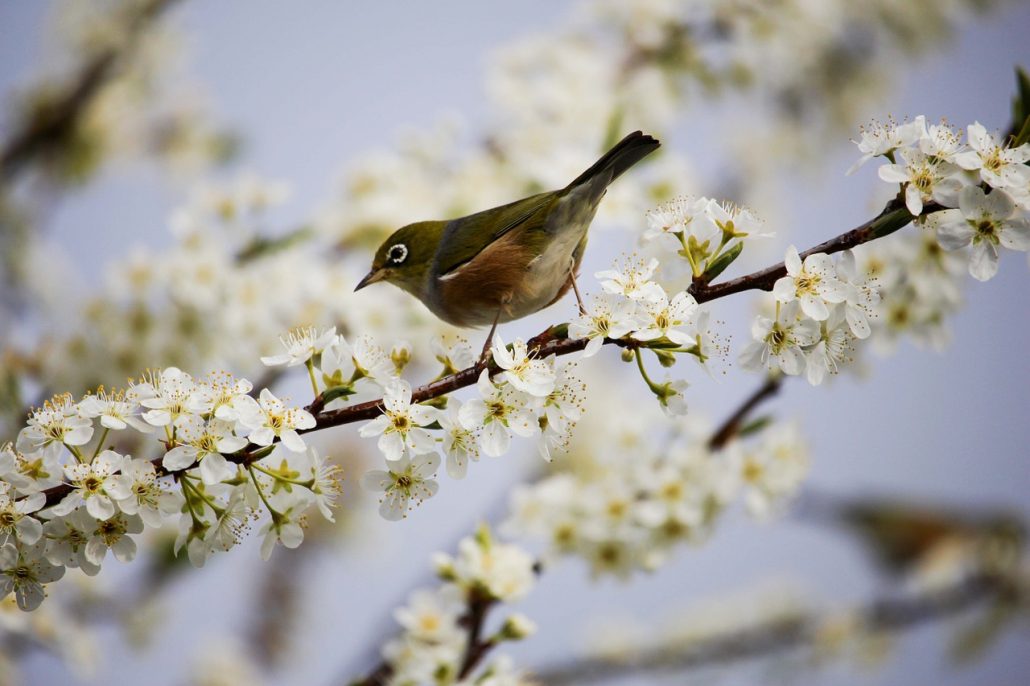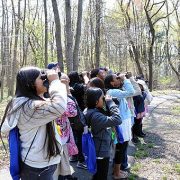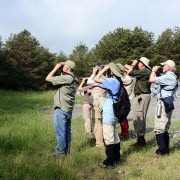How Bird Watching Could Be Incredibly Beneficial for Your Mental Health
By Adelina Benson
There seems to be a mental health epidemic happening right now around the world. With Western populations averaging affected rates of around 18%, according to WHO, even higher when it comes to younger generations, many people are looking for treatments and ways to help manage the way they feel.
From mindfulness meditation to medication, there are many solutions out there, but we want to focus on a tried and true pastime—birdwatching!
Today, we’re going to explore the mental health benefits that birdwatching can have, detailing everything you need to know in the event you wanted to help yourself or a loved one. Let’s jump right into this!

Recent Studies Suggest:
Three combined studies carried out by the University of Exeter (UK), the British Trust for Ornithology (UK), and the University of Queensland (AUS), have discovered recently that people who are exposed to more natural environments have significantly fewer feelings of stress, depression, and anxiety.
The studies defined nature as “more birds, trees, and shrubs.” The studies included 270 people and contained a diverse range of people of all ages, ethnicities, and genders.
Using Birdwatching as a Remedy
Perhaps one of the most interesting results of the studies was the fact that even if people rated their depression/stress/anxiety levels high in the mornings, several hours of birdwatching were seen to consistently raise these feelings and helped people to feel much happier in themselves and the world around them.
What’s more, it didn’t matter what kind of birds were spotted; whether these were native birds or all different species and varieties or lots of the same species, the benefits seem to remain the same.
Nature and Mental Health

This study is interesting because so many people have long described the benefits that nature has on us as human beings, and how we are somehow connected on a mental, psychological, and sometimes even spiritual level; this research is another step in confirming it.
So many of us have refined ourselves to office tower blocks, flats and apartments, and metal box vehicles, meaning some of us might not have contact with nature for a prolonged amount of time; maybe even for several weeks.
While the study sample is small, these studies could partly explain why there is an increase in mental health conditions around the world, and why people seem to be becoming increasingly unwell.
Steps for the Future
If you find that you’re suffering from a mental health condition such as stress, anxiety, or depression, while it’s not recommended you cut out or stop taking any medication or treatments you’re currently using, it may be a good idea to get outside to see what kind of birds you can see.
Whether you’re simply investing in a bird feeder and setting it up in your back garden or you’re going for a walk in nature to see what you can see, the act is beneficial to your mind and body, even if you don’t see something.
You can do this in a nearby rural area or even in your local park or wildlife reserve. Once you become mindful of these natural areas, you’ll soon realize that birds and wildlife are present throughout society, even in built-up areas.
All you need to do is become mindful and watchful for their existence, and already you’ll start to see the benefits. Birdwatching is renowned for being a meditative exercise and can help nurture your connection with nature.
Instead of allowing your mind to run free on crazy tangents and mad thought patterns, which usually result in anxious or stressed out thoughts, allowing yourself to focus on something like looking for birds can help keep your mind present and those pesky thoughts at bay.
Of course, this is a practice that takes time to develop and nurture, but with regular practice and focus, you’ll be there in no time at all.
Adelina Benson is a lifestyle blogger and writer at PhDKingdom and Academicbrits. She develops mindfulness practices, edits and proofreads wellness articles. In her free time, she loves to blog to help people reach their full potential at OriginWritings.com.





